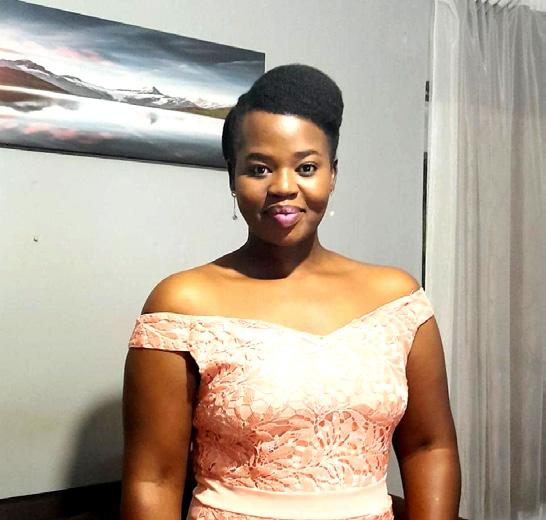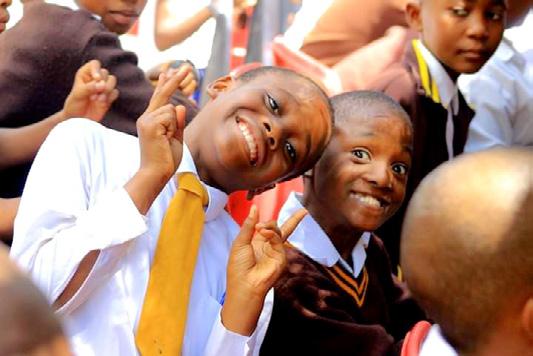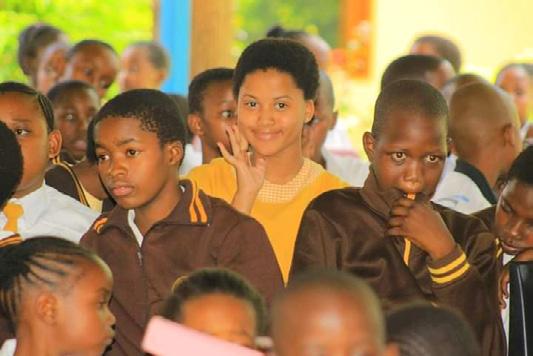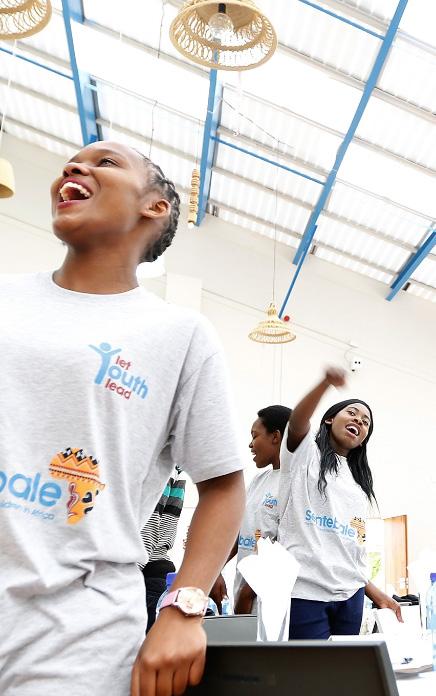
7 minute read
Believe Again Foundation Instills Hope In People Suffering From Abuse
By Chedza Mmolawa
Inspired by a painful personal background, a young woman in the North Eastern part of the country started her organisation called Believe Again Foundation to stop the reoccurrence of abuse in women and children in Botswana. After losing her younger sister to what she believes was an abusive boyfriend, and being rejected by her mother as a young child, Elena Habangana established a haven where women and children seek emotional healing from the harsh realities they endure from loved ones and society. Believe Again has become a place of peace and solace for the abused and abandoned population in the North East District of Botswana.
Advertisement
Today Habangana is a mother, a wife, a sister, and most importantly, a beacon of hope within her community. She represents a second chance to those who have lost all hope in life. In her own words, Habangana explains why and how she started the Believe Again Foundation. TRC: Tell our readers about Believe Again Foundation and why it was established? EH: At Believe Again, we welcome all women, whether they are married or single, whether they are mothers or youth. We also advocate for the well-being of children, both boys, and girls. My passion to help women comes naturally to me because I feel like I know the basic needs of most women; one of the most important of those needs being a listening ear. Having someone to listen to you as a woman can unburden you and maybe even save your life. One of my missions when I started the foundation was to become the person who listens more than the person who speaks.
One thing I noticed as I casually had conversations with women in different spaces is that as women in our society, there are no "safe" spaces we can go to and speak and be listened to. There are no places we can go for sound, unbiased, and non-judgemental advice. The kind of conversations I am talking about do not involve financial advice; women seek people to listen so they can heal emotionally. Some women live in toxic environments where brutal words are used on them daily to break them. These women need emotional healing, and being the person that listens sometimes gives that healing.
So by setting up this organisation, I wanted to be a listening ear for women. And contrary to what many would assume, we do not only talk about issues of relationships and marriages. Women are abused at work, within their families, by friends, and by society at large. We have partnered with other organisations that have the learned skills and capabilities to deal with healing the emotional aspect that has been broken by abuse in women.
A few years ago, I lost my younger sister because of the silence within our families. She was found dead, and it was concluded a suicide, but I know it was the boyfriend. And I feel that our parents and society by not giving us an ear, are destroying us, and they are allowing those monsters out there to kill us because we are vulnerable, and we end up falling prey to evil predators.
Believe Again is also involved in the well-being of children. This is quite close to my heart because I initiated this based on my upbringing. I was raised by a single mother. My mother was quite angry and resentful; she offloaded the pain caused by my father on me. So growing up, I grew up scared of my mother and everyone around me because of the way she treated me.
Throughout my childhood, I felt like I was a mistake and I didn't deserve to be alive. But as I grew older, I grew stronger and wiser, and I reached a point where I decided to start loving myself and taking better care of myself. So when I set up Believe Again, it was based on my experience growing up. It was import-

ant to me to help children experiencing what I experienced that no matter the harsh circumstances they came from, they should 'Believe Again' and know that they too can become someone important someday.
The generations behind mine are more assertive than we were, but they are also more sensitive, which makes them vulnerable. So they need guidance in navigating and finding strength out of challenging circumstances. Children these days are more depressed and even commit suicide more than we did during my days. So as Believe Again, our goal is to show the children that we work with and that there is hope. We want to instill faith in them and teach them how to live a happy life even though they may be going through rejection and abandonment. And I believe that my childhood experience has equipped me with the right tools to help them overcome and believe again. TRC: How does your organization approach CSR and what types of the initiative have you done or are currently working on? EH: I am a motivational speaker, so the contributions Believe Again impacts on society is through talking and most importantly, through listening. So basically, we do a lot of counseling for those who seek solace in our foundation. We are currently working towards building a shelter for abused women so that they have room on their heads to run to when they feel that their lives are in danger. We also have plans of building a community home for the boys and girls who need our services. Based on where and how I grew up, I always wished there would be a place I could have gone to where I would feel safe and protected, and this is what I want to build for vulnerable children.
At Believe Again, we believe in empowering people to help themselves when we can't. We are also looking into taking the people we identify for short courses so they have the foundations to start their own lives after leaving abusive situations. TRC: How does Believe Again benefit from the charity work you do? EH: By giving back, we are fully fulfilled. If we can change and transform people's lives at a go, that is all the benefit we can ask for. Us giving hope to the people we interact with also motivates us to continue affecting change within our community. TRC: What challenges have you faced since starting the foundation? EH: Finance because not a lot of people believed in us. They think we are like some fly-by-night organisation that wants to make money out of people and disappear. But we have resorted to using the money I get from my day job to fund the foundation because this is my passion, it is my calling. We have aspirations of touching and helping lives throughout the country, and we will persevere.


Sentebale On A Quest To Empower Vulnerable Youth In Botswana
By Lorraine Kinnear
The global fight against the scourge of HIV/AIDS has been somewhat successful; nations have triumphed in reducing the HIV/AIDS deathrelated numbers significantly. However, this does not mean HIV/ AIDS is not affecting communities; it still is. And this is why it is critical for the global community to eliminate HIV/AIDS as a public threat. This also means young people should be fully engaged and at the forefront of the response.
While progress has been made in reducing HIV prevalence, there are still many socio-economic issues that need to be addressed. Many organizations in the civil sector understand that to address the impact of HIV/AIDS they have to address all other associated issues such as stigma, low self-esteem, and confidence.
Sentebale is an organization that has positioned itself well in offering children and young people the tools required to navigate the world once they’ve been infected with or affected by HIV/ AIDS. To unpack this tenet further, we spoke with Sentebale's Senior Advocacy and Communications Officer, Olerato Keegope.
THE FOUNDATIONS OF SENTEBALE Sentebale was founded in 2006 as a response to the needs of children and young people in Lesotho by Prince Harry, The Duke of Sussex, and Prince Seeiso. The name, which means "forget-me-not" in Sesotho, represents a pledge to remember the region's affected and vulnerable children. The organization began by assisting with the basic needs of children and young people, and as time passed, a need arose











